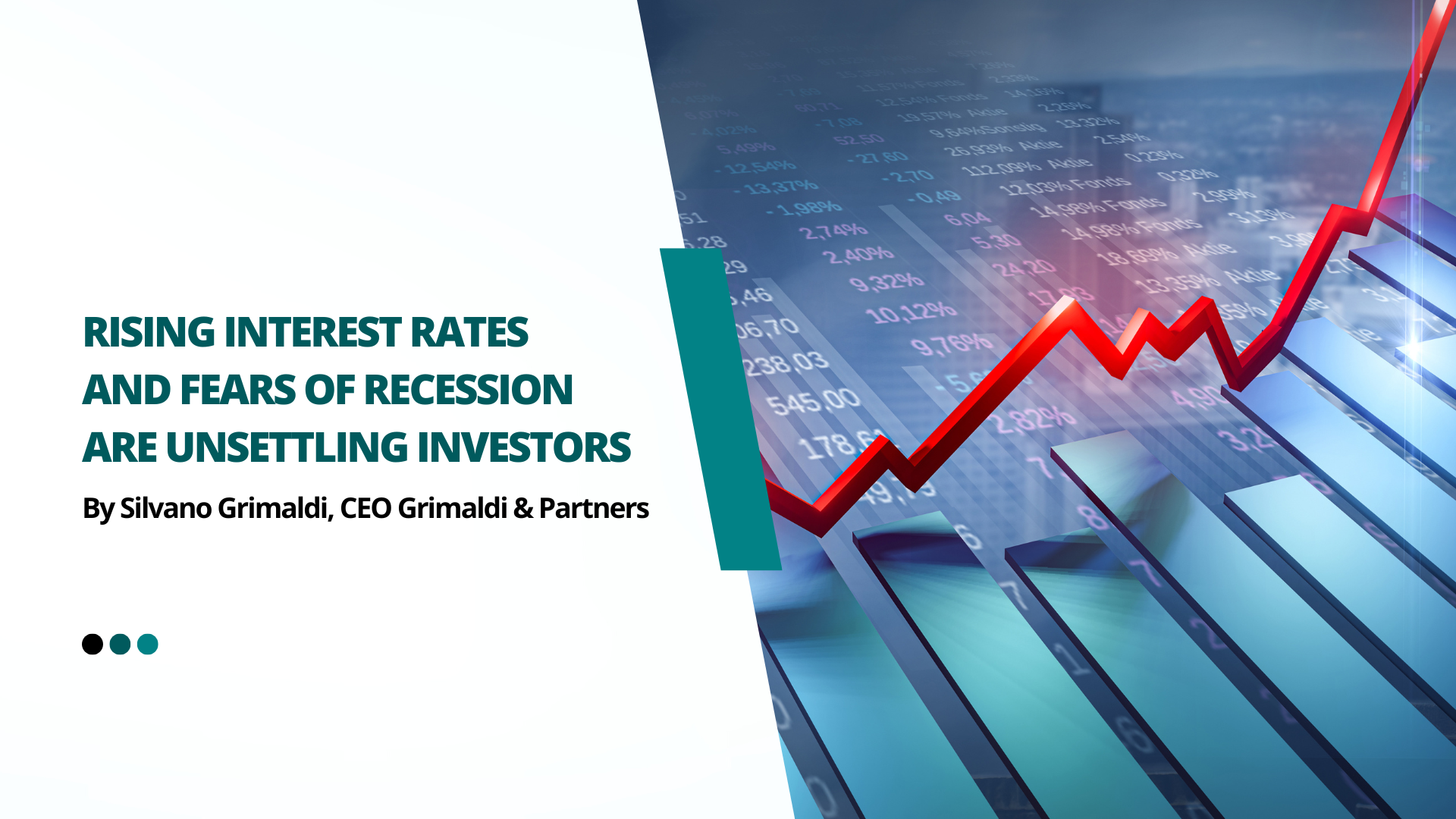GRIMALDI & PARTNERS: Rising interest rates and fears of recession are unsettling investors
By Silvano Grimaldi, CEO Grimaldi & Partners
Zurich – Will interest rate hikes lead to a deep recession? Is a mild downturn in the economy (soft landing) realistic? How should investors position themselves? Silvano Grimaldi, CEO of the independent asset management company Grimaldi & Partners AG, gives you the answers to these questions.
Reactions of the central banks to the high inflation rates
For a long time, practically all central banks and most economists underestimated the extent of the inflation increases, which are usually measured by consumer price indices. In order to prevent further rises in these inflation rates, the central banks are raising interest rates and shrinking their balance sheets. The Fed will have to continue the rate hike cycle for some time in the coming year, since experience has shown that interest rate increases only have a noticeable effect on price developments after a considerable delay – ie only after 12 to 18 months. If the ECB completes the rate hike cycle in spring 2023, the main refinancing rate could already have peaked at 3.0 percent. In Switzerland increases in prices caused by the price development of imported goods and services are significantly weakened by the appreciation of the CHF against the US dollar and the euro.
Should investors expect recessions?
With some certainty, however, the key interest rate in the USA is already above the neutral interest rate and is slowing down overall economic growth. In the euro zone, the key interest rate is approaching the neutral interest rate and in Switzerland it is likely to be significantly lower. For a severe recession, however, the unemployment figures must continue to rise sharply and the supply of goods and services must clearly exceed demand for a long time. In most labor markets there are currently no signs of increasing unemployment. In addition, there are still no alarming signs of a general and prolonged decline in global economic growth – despite the politically desired restrictions on world trade. In the USA, therefore, a soft landing of the economy is still quite possible, despite the key interest rate increases in quick succession. However, there is a risk of recession for Germany and consequently also for some other countries in the euro area.
How should and can investors react to the current situation?
After the price losses in the first half of the year, the bond and stock markets recovered in June and August. In September, however, many bond and stock prices fell to new lows. The listings of all asset classes fell, and the real estate markets and the price of gold were not completely immune to this development.
Experience has shown that financial markets react earlier than appears appropriate from a real economic point of view. Expected interest rate hikes, periods of economic weakness and recessions are usually already priced into the prices . But no one knows when the financial markets will really recover in the long term.
A definitive end to the bear market is not yet in sight. Investors should get through the crisis, be patient and, if possible, use the low prices to make new investments. Volatility will remain high for now. Investors should not base their investment decisions on the development of stock indices, but on the data of the companies in whose shares they have invested or intend to invest. Although company fundamentals appear to play only a minor role in price development at present, they are crucial to the longer-term performance of a company's shares. In the longer term, the share price always follows the profit development of a company, which is determined by the business and earnings model. At present, there are fears that there will be many noticeable revisions to profit expectations. So far, however, the majority of listed companies have coped well with the increased prices and costs. The margins have not collapsed and continue to allow for high dividend yields. In retrospect, severe price declines and even bear markets have repeatedly turned out to be exceptionally good entry opportunities for long-term investors.
Conclusion: Increase individual stocks as long as the recovery in share prices is not broadly based
Interest rate trends are currently favoring bonds. Bonds from Swiss companies in particular have again become very interesting not only for institutional but also for private investors. Although interest- sensitive growth stocks are currently less in demand, well-positioned companies with solid cash flows from this area are still attractive long-term investments. Swiss quality stocks continue to be preferred (home bias). The companies in question are characterized by: stable growth rates, solid balance sheets and low price/earnings and price/sales ratios and attractive dividend yields. Such stocks can be found in many sectors, including areas Food, insurance and pharmaceuticals. In the longer term, however, shares in companies from the health and care sectors, utilities and shares in banks, whose margins are improving significantly due to interest rate developments, can also become more interesting for investors.
© 2022, Grimaldi & Partners Ltd.
GRIMALDI & PARTNERS Vermögensverwaltung is a renowned independent Swiss asset manager domiciled in the city of Zurich. The main bearers Silvano Grimaldi, lic.oec. HSG and Dr. iur. Reto A. Lyk are distinguished former bankers with an excellent reputation and more than 25 years of professional experience in asset management in the Zurich financial center. The top-class management team ensures flawless management of the business for the benefit of the customers. Grimaldi & Partners stands for independent, neutral, transparent, cost-conscious, performance-oriented asset management with better asset protection.
GRIMALDI & PARTNERS AG
Rautistrasse 33
8047 Zurich
Phone: 044 520 00 10
Email: info@grimaldi-partners.ch






